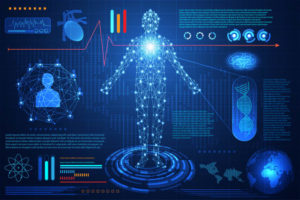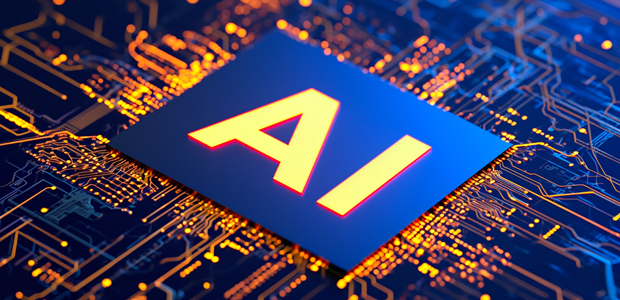Advantages and Disadvantages of Using Artificial Intelligence (AI) in Healthcare
 No matter the industry, artificial intelligence (AI) has become routine and commonplace. When it comes to healthcare, AI helps practitioners streamline tasks, expand operational efficiencies and simplify complicated medical procedures. AI in medical billing and coding is becoming increasingly more crucial.
No matter the industry, artificial intelligence (AI) has become routine and commonplace. When it comes to healthcare, AI helps practitioners streamline tasks, expand operational efficiencies and simplify complicated medical procedures. AI in medical billing and coding is becoming increasingly more crucial.
Although AI is certainly transforming the healthcare industry, this technology is still quite new. As AI acceptance grows, however, questions about both the benefits and limits of this technology become even more relevant.
Let’s look a bit closer at some of these issues.
Benefits of AI in Healthcare
- Delivers real-time data
A significant piece of diagnosing and attending to medical issues is first obtaining the most accurate information in a timely manner. With AI, doctors and other healthcare providers can leverage immediate and clear-cut information to speed up and improve vital clinical decision-making. Producing quicker and more accurate results can lead to better-quality preventive steps, cost-savings and patient wait times. Drexel University Information Scientist Professor Christopher C. Yang says, “As AI technology is becoming more advanced, more data can be collected than traditional medical institutions could ever possibly accumulate.” - Supports research
AI enables researchers to amass large swaths of data from various sources. The ability to draw upon a rich and growing information body allows for more effective analysis of deadly diseases. Related to real-time data, research can benefit from the wide body of information available, as long as it’s easily translated. Medical research bodies like the Childhood Cancer Data Lab are developing useful software for medical practitioners to better navigate wide collections of data. AI has also been used to assess and detect symptoms earlier in an illness’s progression. - Streamlines everyday jobs
AI in the medical field has already altered healthcare practices far and wide. Advances have been seen in appointment-scheduling, interpreting clinical details and tracking patient histories. AI is assisting healthcare facilities in streamlining more monotonous and painstaking tasks. For example, intelligent radiology technology can now recognize meaningful visual markers, avoiding hours of intense analysis. Other automated systems mechanize appointment scheduling, patient tracking and patient care proposals. One unique task that is simplified with AI is assessing insurance. AI is used to reduce costs stemming from insurance claim denials. With AI, healthcare providers can pinpoint and deal with mistaken claims prior to insurance firms refusing payment for them. Not only does this make the claims process more efficient, AI saves hospital staff the time needed to go through billing claim denials and resubmit the claim. - Could ease physician anxiety
Plenty of research tells us that over half of primary physicians suffer stress from deadline burdens and other workplace circumstances. AI helps streamline practices, automate tasks, share data promptly and systematize operations, all of which help alleviate healthcare professionals and administrators from juggling too many duties. - Saves time and resources
As more essential processes are automated, medical professionals will have more time to properly assess patients and identify illnesses and ailments. AI is fast-tracking operations to save healthcare facilities valuable productivity hours. In any sector, time equals money, so AI has the capacity to save substantial costs. It’s estimated around $200 billion is squandered in the healthcare industry each year. A decent portion of these needless costs are accredited to administrative strains, such as filing, reviewing and sorting out accounts. - Another area for improvement is in medical necessity determination
Hours of reviewing patient history and information are customarily required to accurately measure medical necessity. New natural language processing (NLP) and deep learning (DL) algorithms can help physicians in assessing hospital cases and sidestepping denials.
Disadvantages of AI in Healthcare
- Requires human observation
Although AI has progressed in the medical world, human surveillance is still indispensable. For example, surgery robots operate rationally, rather than sympathetically. Healthcare practitioners may detect essential behavioral observations that can help identify or even avoid medical complications. “AI has been around for a few decades and continues to mature. As this area advances, there is more interaction between healthcare professionals and tech experts,” says Professor Yang. AI needs human input and review to be leveraged efficiently. - Mistakes are still possible
Medical AI rests broadly on diagnosis information accessible from millions of catalogued cases. In instances where minimal data exists on certain illnesses or demographics, for example, a misdiagnosis is completely possible. This issue becomes particularly significant when prescribing a specific medicine. Yang says, “No matter the system, there is always some portion of missing data. In the case with prescriptions, some information regarding certain populations and reactions to treatments may be absent. This occurrence can lead to issues with diagnosing and treating patients belong to certain demographics.” - Vulnerable to security threats
As AI is typically reliant on data networks, AI systems will be open to security risks. With the arrival of Offensive AI and Malicious AI, enhanced cyber security will be essential to help assure the technology is defensible. Since AI employs data to build systems that are smarter and more precise, cyberattacks will include AI to become smarter with every hit and miss, making them tougher to predict and avert. When harmful threats out-maneuver security shields, the attacks will be quite a bit more difficult to overcome. - Can result in unemployment
True, AI may help slash costs and ease clinician pressure, however, it may also make certain jobs redundant. This variable may give rise to ousted professionals who devoted their time and money in healthcare training, posing challenges to evenhandedness.
Should AI be Used in Healthcare?
AI almost certainly has the capacity to enhance healthcare systems. Automating mind-numbing jobs can clear up clinician to-do lists, allowing for more interfacing with patients. Making data more available assists healthcare providers in choosing the right steps to thwart illnesses. Real-time information can more rapidly form diagnosis. AI is being applied to shrink administrative mistakes and protect vital resources. SMEs are more and more included in developing AI, making the technology more relevant and better-informed.
AI in healthcare is being deployed every day and restrictions and challenges continue to be met and defeated. Yes, AI still demands human observation, may eliminate social variables, suffer gaps in population data and is subject to more and more planned cyberattacks. Regardless of some of the challenges and limits AI encounters, this ground-breaking technology promises unique benefits to the healthcare industry. Whether a patient or healthcare provider, lives everywhere are being improved, thanks to AI.

